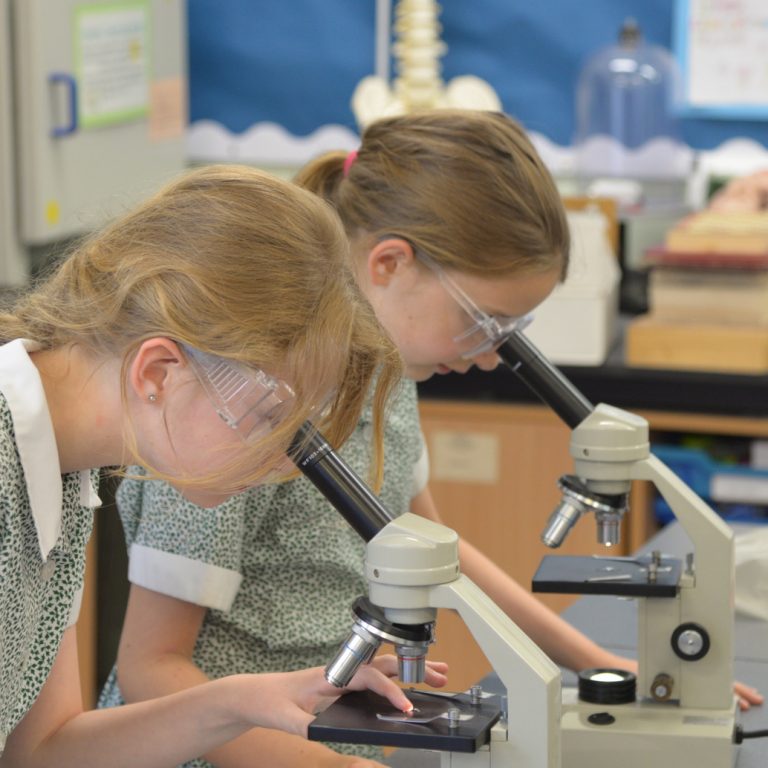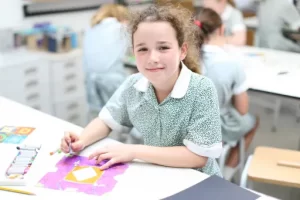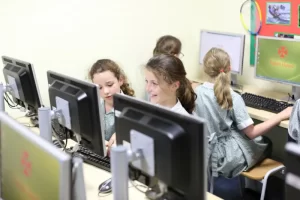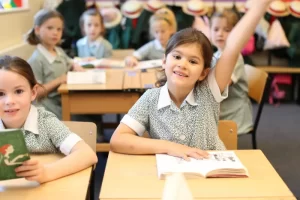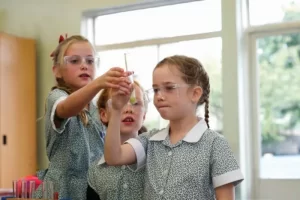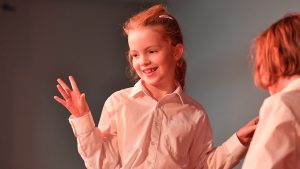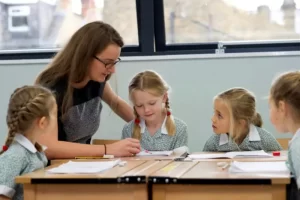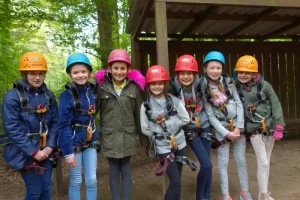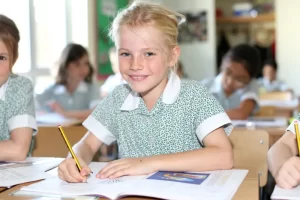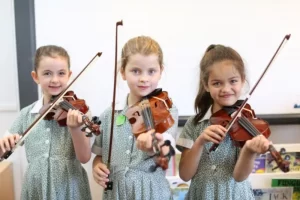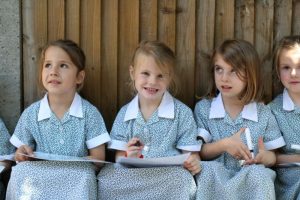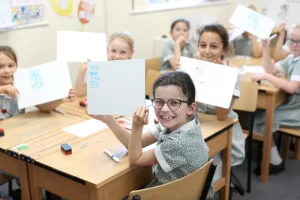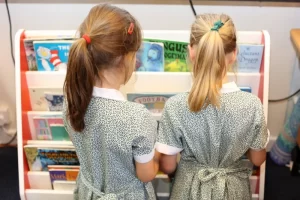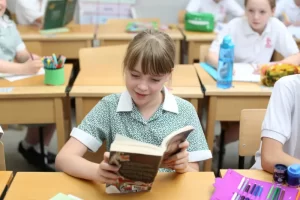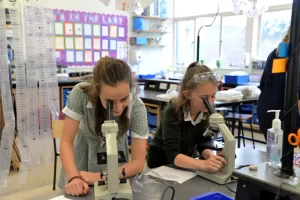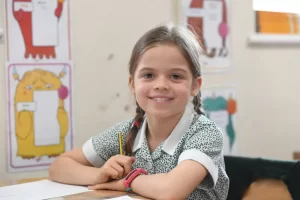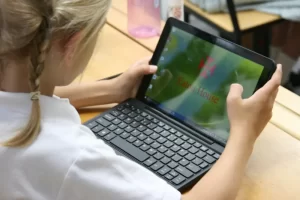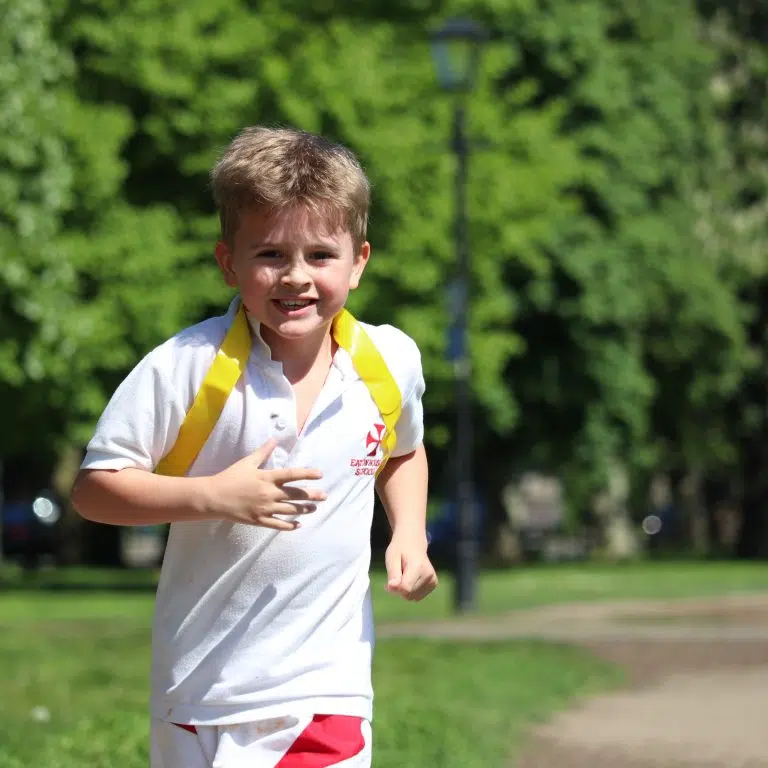From the moment the girls arrive at Eaton House The Manor Girls’ School to the day they conclude Year 6, we want a love of learning to be stimulated by all we do.
We provide a broad and varied curriculum from the very outset, with equal emphasis given to the arts and STEM (science, technology, engineering, and mathematics) subjects. Thus, even at age 4, the girls will experience computing, TPR (theology, philosophy and religion), science, topic, PE, swimming, art, music, drama, dance and French in addition to their literacy and numeracy lessons.
Subject specialists work with all our girls in PE, Music, French and Dance. Once in Form 3 (age 7-8), the girls also then receive specialist teaching in Science, Art and Reasoning.
With the 11+ exams being a constantly evolving assessment process – in terms of both the structure and the content of the tests – we are continually reviewing our curriculum in order to provide the best possible preparation. As a result, we are hugely proud not only of the range of outstanding London day and boarding senior schools that our girls join after leaving Eaton House but also of the wealth of scholarships and awards they win in the process.
Core Literacy and Numeracy Skills
Developing the core literacy and numeracy skills forms the backbone of our academic curriculum. All our form teachers deliver English and maths to their classes with a natural emphasis being placed on these subjects in terms of the amount of time given over to them. In the early years, we want the girls’ learning to be as multisensory as possible, so we ensure a broad variety of different resources are employed both in and out of the classroom. Engaging each girl’s imagination through language and literature enables us to achieve rapid progress in the reading and writing process, and by making our maths syllabus both practical and formal we demonstrate how such areas as time, measurement, shape and money are connected to the real world.
Technology
Technology is a powerful educational, social and creative tool and we want the girls to understand how to use it safely and effectively. Every classroom has an interactive whiteboard that is frequently used in the teaching and learning process, we have an ICT suite providing access to 20 PCs, and a bank of tablets which can be used as required. And as we teach the girls how to develop their IT skills so we also take them through a comprehensive e-safety programme to raise their awareness of potentially harmful online behaviours and how to avoid them.
Presentation Skills
Presentational and interpersonal skills also permeate the curriculum. For the girls to be leaders, collaborators and confident public speakers by the time they leave us, it is tremendously important we nurture and encourage a number of skills needed when connecting with an audience. Thus, whether it be through ‘show and tell’, class assemblies, productions, speech and drama, lessons or a multitude of in-class activities, all the girls are offered a host of opportunities to practise the art of effective communication.
Assessments
Throughout the year, we conduct a series of formative and summative assessments to measure each girl’s attainment and ability. The results of these assessments are shared and discussed with parents through our termly reporting system, our twice-yearly parents’ evenings, and, most crucially, through the ongoing, more informal discourse which takes place through face-to-face contact or via email.
Exam Preparation
We are currently enhancing our exam preparation with some exciting educational techniques to promote independent thinking. Adventure books have been introduced to all the girls from KG (Kindergarten) to Year 6 because we want to challenge the girls with open-ended questions that do not have a right or wrong answer. Instead, they are designed to develop the creative, evaluative and analytical thinking skills that are being increasingly assessed at 11+. For these tasks we use exercise books with pages that are part blank and part lined so that the girls can express their ideas both visually and verbally. Questions can be fun and challenging such as:
- “What’s more important, time or money?”
- “What would happen if the world were ruled by elephants?”
- “Do you see yourself as more of a square or a circle?”
These books help all our girls to handle open-ended examination questions with confidence and flair.
Click on the dropdown options below to find out more about each subject.

